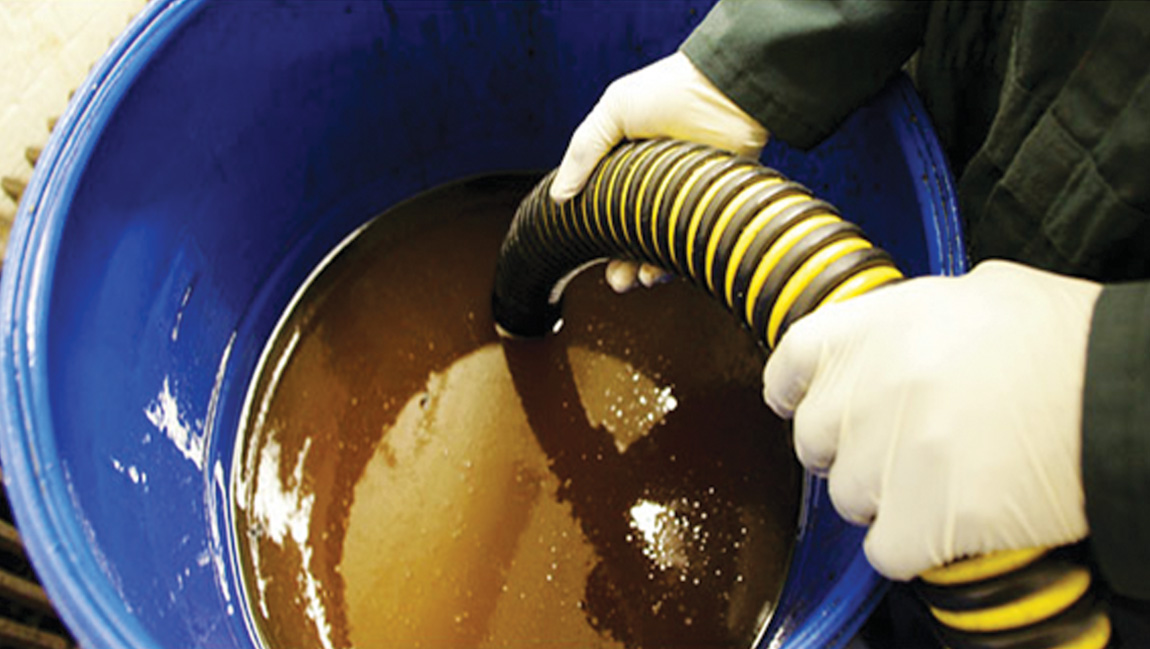Managing used oil – legally

Used oil is a common by-product of mechanised processes in all industry sectors, and, because of its harmful properties, it is classified as a hazardous waste. Used lubricants contain harmful compounds and carcinogens that can easily contaminate the environment, especially if thrown down drains, into landfills, or onto the ground.
As a hazardous substance, used oil is strictly governed by environmental laws and its storage and disposal has to meet the requirements of the Waste Act. The management of used oil is, therefore, a great responsibility and the Recycling Oil Saves the Environment (ROSE) Foundation offers some important advice to generators of used oil.
Registering on SAWIS
Anyone generating in excess of 20 kg of used oil per day is required to register on the South African Waste Information System (SAWIS).
Once registered, the generators need to submit their figures every 90 days (quarterly) into the SAWIS. This information needs to be based on actual volumes and not estimates. It must be retained by the waste generator for five years and produced for inspection when required.
Maintain a hazardous waste manifest
As used oil is classified as hazardous waste, generators are required to maintain various information on a Hazardous Waste Manifest; a document that will track the used oil from cradle to grave and offer a clear snapshot on how it has been managed.
This will include the generator’s contact details, the origin/source of the waste, its quantity and packaging and any special handling instructions.
The proper collection and storage of used oil
Used oil can find its way into our water table through disposal in drains and storm-water drains and by being poured directly onto the ground as either a dust suppressant, or as a means of disposal.
To prevent this, drain oil into a clean container with a tight-fitting lid, such as a reusable combination drain pan/storage container. Use a specially designed plastic sump or container to collect and store used oil.
Ensure that oil is stored in a container with a secure lid so that it cannot spill out. Empty oil containers and drums make effective makeshift storage vessels for used oil, however, it is vital to not use a container that previously held chemicals such as cleaners, solvents, fuels, paint or bleach. Always clearly label the container “used – lube oil”.
Keep these containers in a place that can be accessed by a ROSE-registered used-oil collector and keep the surrounding area clear and clean. Ideally, store these containers under cover and away from heat or sources of ignition.
Very small volumes of used oil can be dropped off at most vehicle service centres, as they have used-oil storage facilities on their premises.
Keep oil-change pans free of water and ensure storage containers are tightly sealed and covered to protect them from rain water. Oil that is contaminated with water is far more difficult to recycle – requiring several laborious and costly processes to separate the water from the oil before it can be recycled.
Ensure that used oil and other fluids, such as antifreeze, transmission fluid, petrol and diesel are not mixed. Mixing them may make them non-recyclable as well as very hazardous and flammable.
Build a wall around your bulk used-oil storage tanks so that, in the event of a spill or leak, the used oil will be contained. In the event of an oil spill, contact your used-oil collector or a hazchem specialist.
Use oil collectors to remove your hazardous waste
Used-oil generators are urged to gather and store their used oil for responsible collection by a ROSE-registered oil collector, who will come and remove the oil and take it to be recycled in an environmentally compliant and safe manner.
The collector must always issue a safe-disposal certificate, which is now required by law under the Waste Act.
This safe-disposal certificate issued by ROSE-registered collectors also acts as a Hazardous Waste Manifest, thereby fulfilling the legal requirements of reporting. The same information can be used on the SAWIS.
Licensed and registered waste oil collectors are compliant with all waste-transportation legislation and are strictly managed and audited – further ensuring the legal compliance of a waste generator.
Published by
Focus on Transport
focusmagsa




